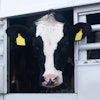The study predicts major shortages in locally-produced eggs and higher egg prices for consumers if the measure passes. The study also found that the measure would effectively ban almost all commercial egg production in the state as of 2015.
"This ballot proposal would create many wide sweeping and unnecessary changes that will impact almost every aspect of the California egg farming sector, and would have an equally widespread and negative effect on consumers, local economies and the local and state tax base," said Tom Earley, the economist and chief author of the study. "We estimate that 95 percent of the $648 million economic impact of the state's egg industry would be lost within the next seven years due to this proposal. Given the state's current economic situation--rising gas and food prices and dismal housing market--California consumers just don't need more bad economic news."
The proposal, currently called the "Treatment of Farm Animals Statute," would outlaw most modern cage as well as cage-free egg housing systems currently used in California. Eighty-five percent of U.S. egg production is independently certified as meeting the animal welfare guidelines established for the United Egg Producers by an independent scientific committee. Legislatures in six other states already rejected a similar ban.
If voters approve the measure, California farmers would be obligated to build 8 to 16 times more hen houses as currently are in use to comply with the new law's requirements and maintain their current egg production. The cost to comply would be at least 76 percent higher than that for current modern cage housing production. "Finding the capital and the land, and obtaining the necessary permits would be challenging enough," Earley said. "But the out-of-state competition from farmers not facing such onerous regulations would drive California egg farmers out of business. Consumers will also feel another economic hit in terms of higher prices, fewer locally-produced fresh eggs and less choice at their neighborhood stores."
California's egg farmers are also very concerned. "We are a family-run, professional business that is--and has always been--strongly committed to farming responsibly," said Ryan Armstrong, vice president of operations at Armstrong Egg Farms in Southern California. "We produce both cage-free and modern cage production eggs for California consumers on our farm, which my family has operated for 60 years. This ballot measure is a slap in the face to those of us who have worked so hard for three generations to do the right thing. The proposal, pure and simple, will put us out of business."
The November ballot proposal calls for fines and up to six months in jail for California farmers that do not provide a specified amount of space for some animals.



.jpg?auto=format%2Ccompress&fit=crop&h=167&q=70&w=250)












